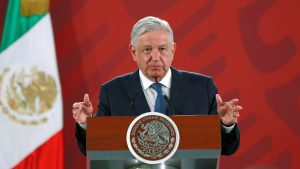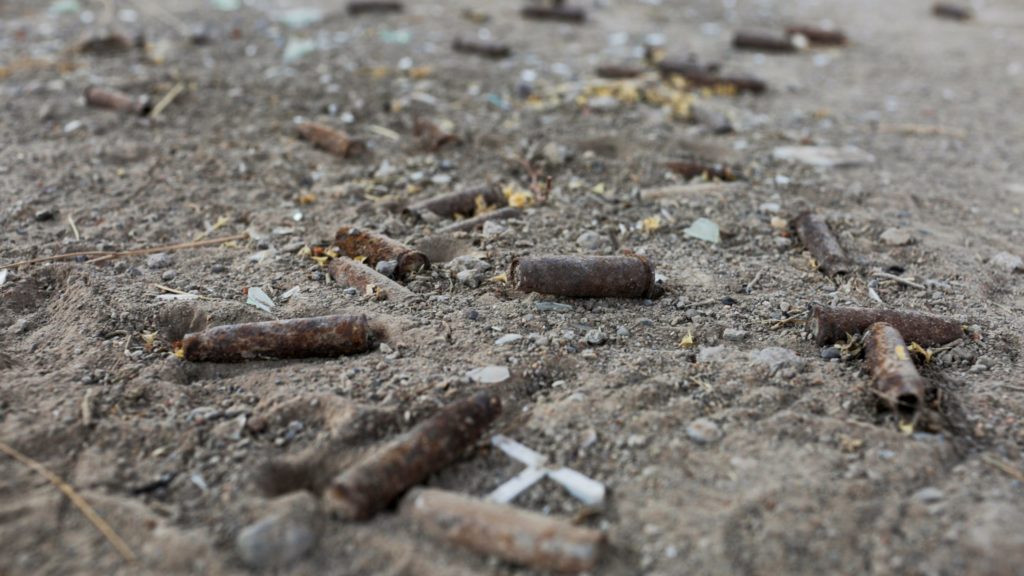A parish priest was shot dead as he drove on a rural Mexican highway May 22, marking yet another attack in what has become the most murderous country for Catholic clergy.
Augustinian Father Javier García Villafaña was killed at around 7 p.m. (local time) in the municipality of Huandacareo in Michoacán state to the west of Mexico City. Father García was found dead with gunshot wounds.
The Archdiocese of Morelia acknowledged Father García’s death, but provided little information and did not respond to a request for comment. The Catholic Multimedia Center, which tracks attacks on clergy, reported Father García had assumed responsibility for the Our Lord of Atonement Parish in Huandacareo April 23.
The murder of Father García followed a May 21 attack on Archbishop Faustino Armendáriz Jiménez of Durango, who said an elderly man swung a knife at him in the sacristy of Cathedral Basilica of the Immaculate Conception in the northwest Mexican state.
Archbishop Armendáriz was unharmed in the attack, though the knife slashed through his clothes, tearing them.
Father García’s death marks the ninth fatal attack on clergy during the administration of Andrés Manuel López Obrador, according to the Catholic Multimedia Center.
Church observers lack a cogent explanation for the attacks on clergy, though they point to rising violence in Mexico after the federal government launched a crackdown on drug cartels in December 2006.
The Catholic Multimedia Center also has noted a rise in robberies, vandalism and the profaning of parishes across Mexico, according to the center’s director, Pauline Father Omar Sotelo Aguilar.
"As we have always said, it’s persecution of members of the Catholic Church, it’s persecution of the Catholic Church as such," Father Sotelo told OSV News.
The church’s relationship with criminal groups can be complicated. Drug cartel members often see themselves as proper Catholics, sponsor patron saint festivities and seek sacraments such as baptisms for their children.

Father Sotelo said the attacks on clergy often involve organized crime as priests are considered authority figures in rural areas rife with violence -- with their murders sending a message of establishing power and control, while paving the way for introducing "narco culture" and the "narco economy," Father Sotelo said.
"In their parish communities, they’re (priests) a social stabilizing force. The parish not only offers spiritual service, but also provides great service to the community," he explained.
Archbishop Armendáriz discarded any suggestions the attack on him was related to organized criminal groups -- which are active in his northern Mexican archdiocese.
In comments to local media, Archbishop Armedáriz said he did not know the suspect, but the person attempted to approach the altar during Mass. The prelate says the suspect asked him if he was the archbishop and upon confirming his identification the person swung the knife.
The suspect was detained in the sacristy by onlookers.
"At times like these, it is crucial that we come together as a society and reaffirm our commitment to the core values of peace, tolerance and mutual respect," the Mexican bishops’ conference said in a May 22 statement. "We reject any form of violence and fanaticism, and we call for the promotion of dialogue and reconciliation to resolve our differences."
López Obrador took office Dec. 1, 2018, promising to calm the country, but homicides have remained stubbornly high. According to government statistics, there have been more than 150,000 murders in four and a half years. The president, however, has insisted he inherited a difficult situation, and the murder rate has dropped slightly under his watch.
He also has blasted Mexico’s bishops for urging him to reconsider a security strategy he calls, "Hugs, not bullets."
May 24 marked the 30th anniversary of the assassination of Cardinal Juan Jesús Posadas Ocampo of Guadalajara. He was killed in a hail of gunfire outside the Guadalajara airport in what the government claimed was a case of mistaken identity. The church has never accepted that explanation.

